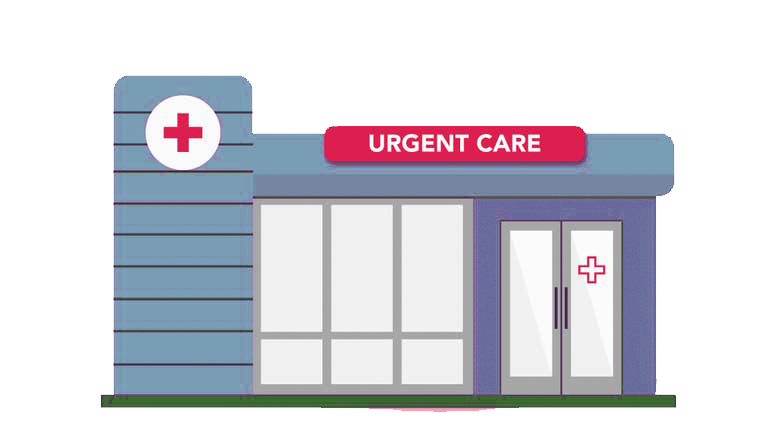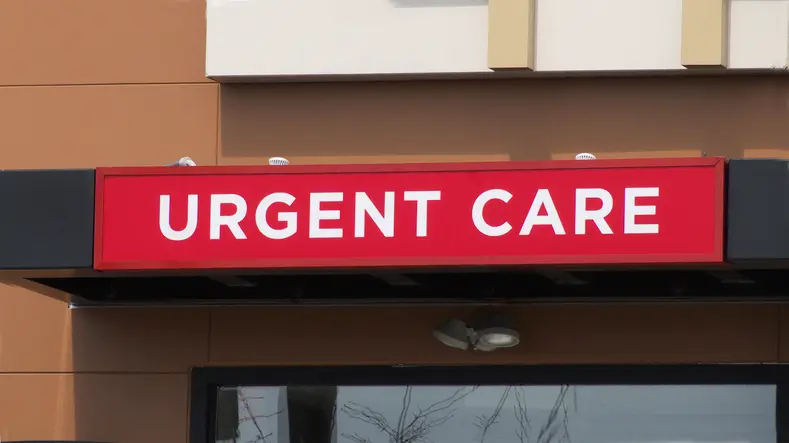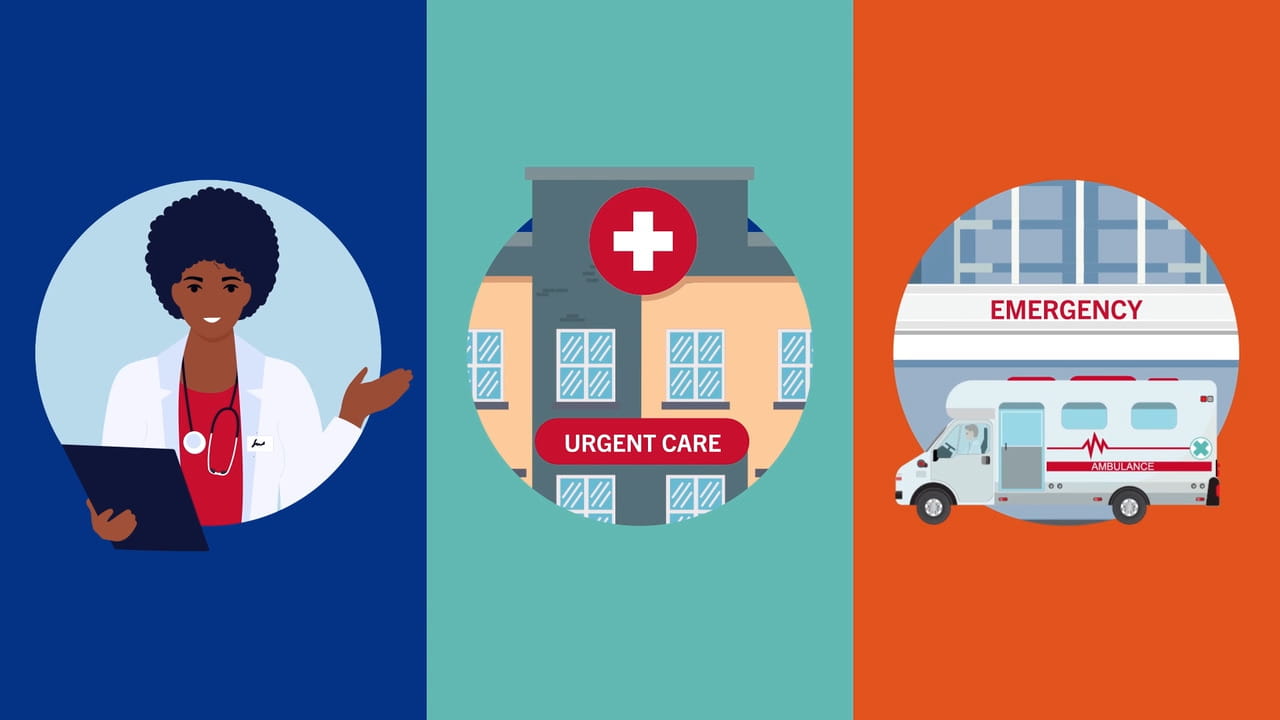Understanding the Relevance of Urgent Treatment Services for Non-Life-Threatening Medical Issues
The importance of urgent care services for non-life-threatening medical problems can not be overstated, especially in today's health care landscape. These facilities supply a vital option for patients looking for punctual attention for conditions that require immediate care yet do not warrant a check out to the emergency situation room. By comprehending the benefits of immediate treatment, such as decreased wait times and expense effectiveness, one can much better appreciate their duty in client health and wellness monitoring. The subtleties of exactly how to navigate these services properly continue to be to be explored, elevating questions concerning their optimum use.
What Is Urgent Treatment?
Immediate care describes a classification of medical services made to attend to non-life-threatening conditions that require immediate interest yet do not call for a visit to the emergency situation space. These facilities give a bridge between medical care and emergency solutions, using available health care options for individuals experiencing intense medical concerns, such as minor fractures, strains, infections, or extreme diseases that emerge all of a sudden.

The scope of solutions supplied by urgent treatment facilities can vary yet usually consists of treatment for typical ailments like colds, influenza, and allergic reactions, in addition to minor injuries (urgent care). In addition, many immediate care facilities supply preventative solutions, such as inoculations and physical examinations, to attend to broader health and wellness demands. By supplying a convenient choice for immediate clinical problems, these facilities play a vital role in the medical care continuum, making sure that individuals receive ideal treatment when they need it most
Advantages of Urgent Care Solutions
Numerous people find that using urgent treatment solutions provides substantial advantages over typical emergency clinic sees or waiting for a health care visit. One key benefit is the minimized wait times. Urgent treatment facilities usually have shorter wait durations, allowing individuals to get timely clinical interest when they need it most. This expedited care is specifically useful for non-life-threatening problems that call for prompt treatment.
An additional benefit is the extended hours of operation. Lots of immediate treatment centers are open evenings and weekend breaks, suiting people that might not have the ability to see their health care doctor throughout routine office hours. This versatility makes it much easier for patients to access treatment at their ease.
In addition, immediate treatment solutions commonly supply a cost-effective choice to emergency clinic. When looking for therapy for minor ailments at immediate care facilities rather than medical facility emergency departments., patients regularly face reduced co-pays and total costs - urgent care.
Lastly, urgent treatment centers are geared up to handle a selection of non-life-threatening concerns, supplying a broad variety of solutions under one roofing system. This comprehensive strategy not only enhances the therapy procedure however likewise improves person fulfillment by supplying punctual and efficient treatment.
Common Conditions Dealt With
What types of non-life-threatening conditions can people expect to obtain treatment for at immediate treatment centers? Immediate care centers are furnished to handle a wide selection of common clinical concerns that need punctual attention yet do not position a prompt risk to life. These facilities commonly treat problems such as minor fractures, strains, and pressures, offering essential treatment for injuries that occur during everyday tasks or sports.
Furthermore, individuals regularly seek therapy for respiratory system infections, including colds, flu, and bronchitis, where timely intervention can reduce signs and symptoms and prevent issues. Skin problems such as breakouts, insect attacks, and small burns are additionally typically dealt with, as timely care can alleviate pain and reduce the risk moved here of infection.

Contrasting Urgent Care and Emergency Clinic

One substantial distinction waits times; urgent treatment centers commonly have shorter delay times contrasted to emergency situation spaces, which can be crowded with even more vital situations. This effectiveness allows patients to receive timely treatment for their disorders.
From a monetary perspective, urgent care visits often tend to be less costly than emergency clinic sees. Insurance coverage copays and out-of-pocket expenses are often lower at immediate care facilities, making them a much more economical selection for non-emergency circumstances.
How to Choose an Urgent Care Center
Choosing the right immediate treatment center can considerably boost the high quality of treatment gotten throughout a non-life-threatening medical issue. When picking an urgent treatment facility, a number of vital elements ought to be considered.
First, analyze the facility's accreditation and licensing. Seek centers that are approved by acknowledged organizations, as this suggests adherence to top quality standards. Next off, review the variety of solutions supplied. Some immediate treatment facilities focus on particular locations, while others provide detailed take care of various medical concerns.
In addition, consider the place and hours of operation. A conveniently located facility with prolonged hours can be critical for timely care. It's additionally recommended to inspect the facility's wait times and individual testimonials, which can provide insights into the general individual experience.
Final Thought
In final see this here thought, urgent treatment solutions play an essential function in dealing with non-life-threatening medical concerns effectively. Ultimately, understanding the value of urgent care facilities contributes to boosted health care administration and client satisfaction.
 By providing a hassle-free option for urgent clinical concerns, these facilities play a crucial function in the healthcare continuum, making certain that clients obtain proper care when they need it most.
By providing a hassle-free option for urgent clinical concerns, these facilities play a crucial function in the healthcare continuum, making certain that clients obtain proper care when they need it most.Many individuals locate that utilizing immediate care solutions provides considerable benefits over traditional emergency situation room brows through or waiting for a main treatment appointment. Numerous urgent treatment facilities are open evenings and weekend breaks, accommodating individuals that may not be able to see their main care physician during routine workplace hours. Urgent care centers are developed to address non-life-threatening conditions, such as minor cracks, infections, and illnesses, providing a hassle-free alternative to emergency situation rooms for those in requirement of prompt treatment. Some immediate care facilities specialize in particular locations, while others offer comprehensive treatment for numerous medical problems.